Floating goldfish, especially post-eating, is a common issue that results in an internet wormhole. Let’s get some facts straight about the anatomy and physiology behind floating goldfish:
Goldfish are Physostomous Fish
Yes, it’s a big word. What is means is that goldfish, like many other carp, have a pneumatic duct between their swim bladder and esophagus. It connects in between the cranial and caudal swim bladder.
WARNING: FOLLOWING PICTURE IS GRAPHIC

The pneumatic duct helps goldfish regulate their buoyancy by taking swallowed air and pumping it into the swim bladder. Goldfish are able to regulate their buoyancy by the amount of air that they swallow. Excess air is removed from the swim bladder via the Oval, which removes air by diffusing it into the bloodstream.
Goldfish Like to Eat
Many goldfish eat like ravenous Golden Retrievers, sucking in floating food at the surface. In doing so, they inadvertently suck in extra air, resulting in added volume to their swim bladder. This can be more common in tanks and ponds with lots of goldfish and a very small space to eat, leading to addition competition and a race to see who can get their fill the fastest. Additional air in the swim bladder results in a positively buoyant fish, aka a floaty fish.
Why Doesn’t This Happen to Every Goldfish?
Just like all people are built differently, some goldfish have better control of their buoyancy, don’t eat as fast or aren’t affected as much as other fish. Fancy goldfish, bred to be pretty, not structurally sound, usually have to sacrifice some of their swim bladder to make room for other organs. Some of these varieties are more prone to buoyancy disorders than standard goldfish.
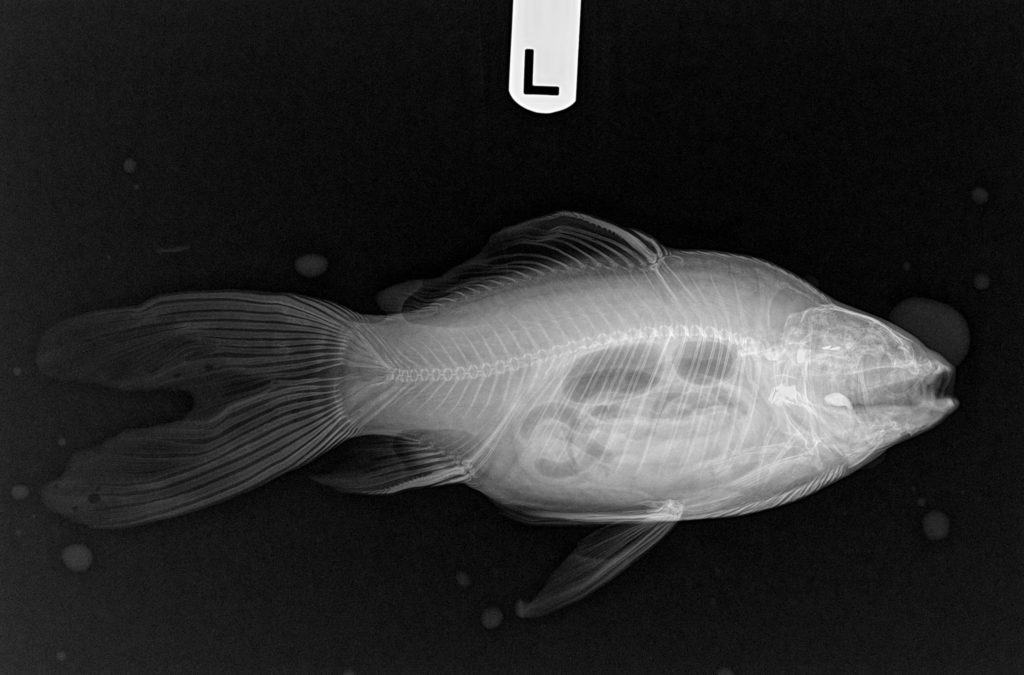
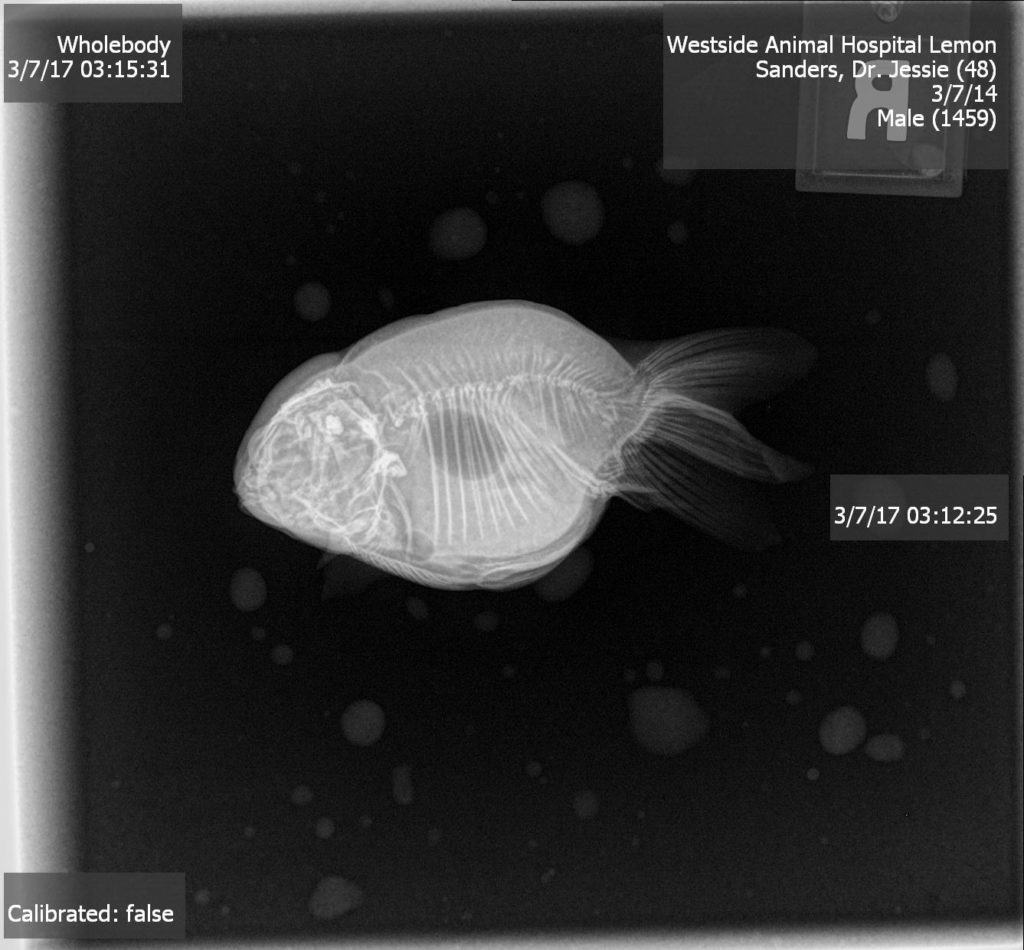
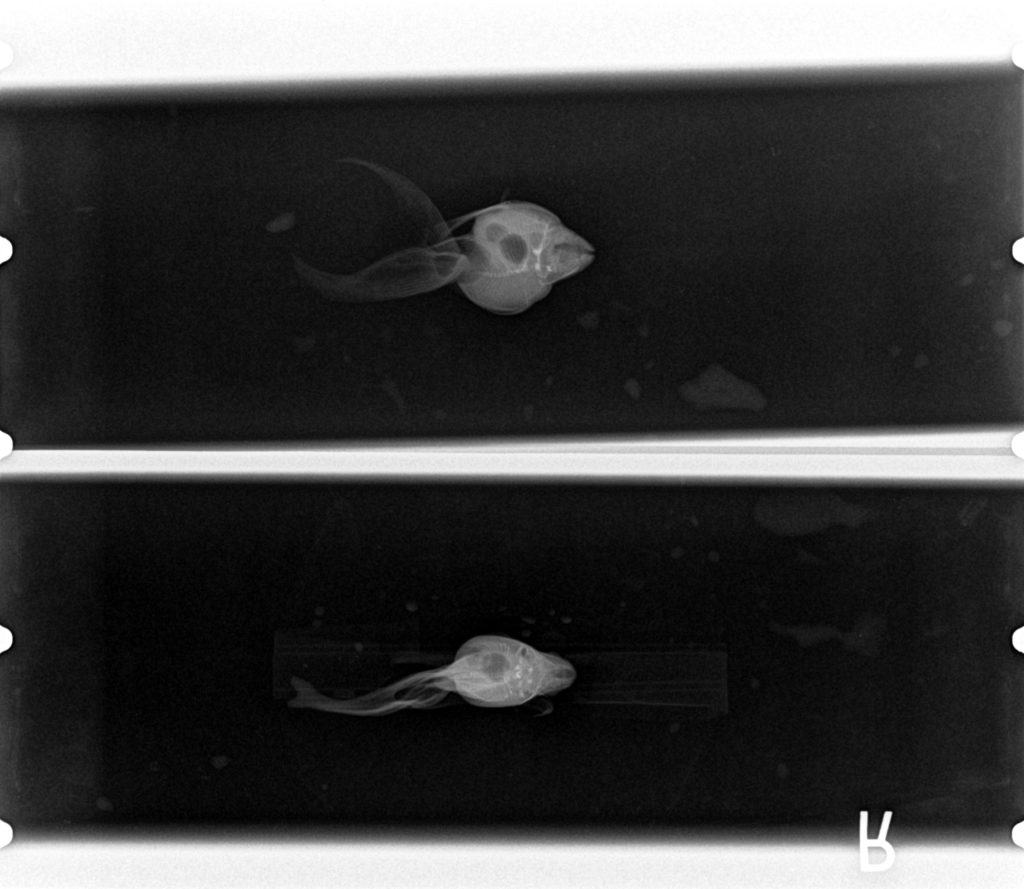
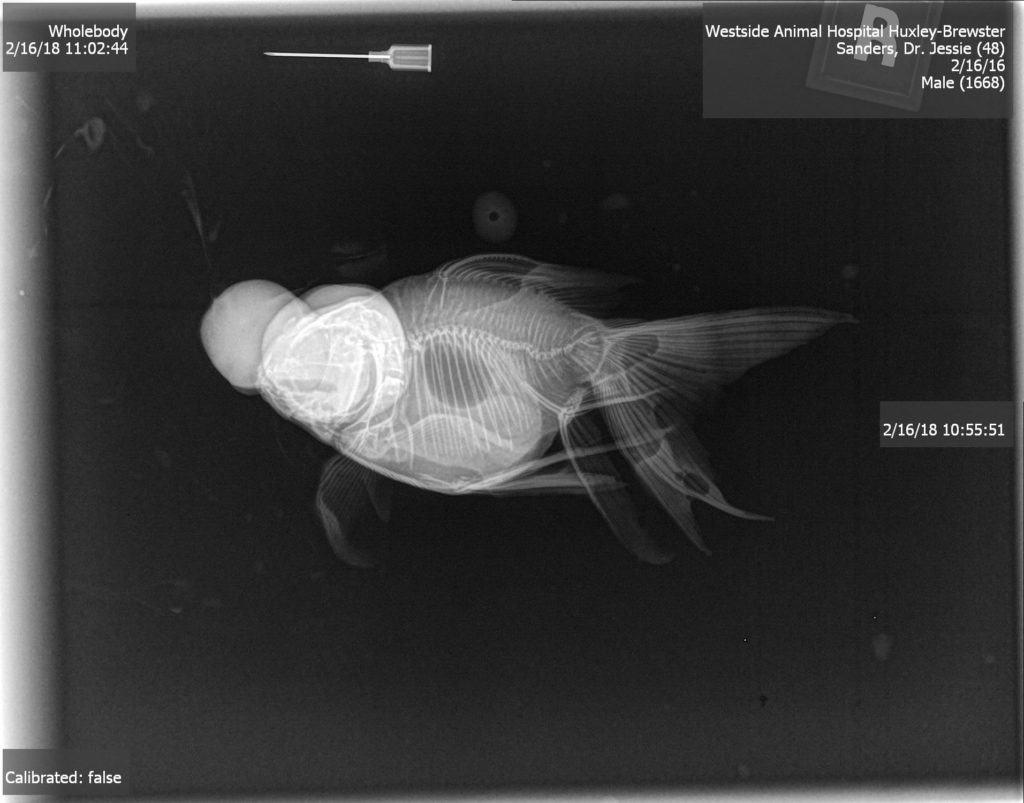
How Do I Fix My Floating Goldfish?
Given some time, most goldfish are able to correct their floaty ways. Air is removed from the swim bladder via an oval gland. It does take a little bit of time to work. Resist the urge to “pop” your fish yourself. The biggest problem with a floating fish is that their skin is no longer underwater. Air ulcerations can start to form and damage your fish’s skin. If they are starting to dry out, take one clean finger and apply a light coating of triple antibiotic or neosporin. Your veterinarian may remove air surgically from your fish in order to correct serious cases.
Depending on the cause and severity of the buoyancy disorder, solutions may be temporary or long-term. For long-term floating goldfish, it is critical to keep their bodies moist. This can be done by spreading bubble wrap across 2/3 to 3/4 of the surface of your tank, allowing your filter to return normally and any aeration to also reach the surface. This way, when your fish has a floating event, the bubble wrap will help keep them partially submerged and protect their delicate skin from drying out.
How Do I Prevent Floating Goldfish from Happening?
According to the internet: feed green peas. Do you know why they work? No, it’s not the fiber content; it’s because they sink. A sinking diet prevents your fish from sucking in extra air during feeding. But peas don’t contain complete fish nutrition and should NEVER be the only thing in your fishes’ diet. What you need is a SINKING PELLET. Yes, they exist. Managing buoyancy disorders for some fish may be a complicated process. If you need help, ask your aquatic veterinarian, or have your local veterinarian consult with an aquatic vet.

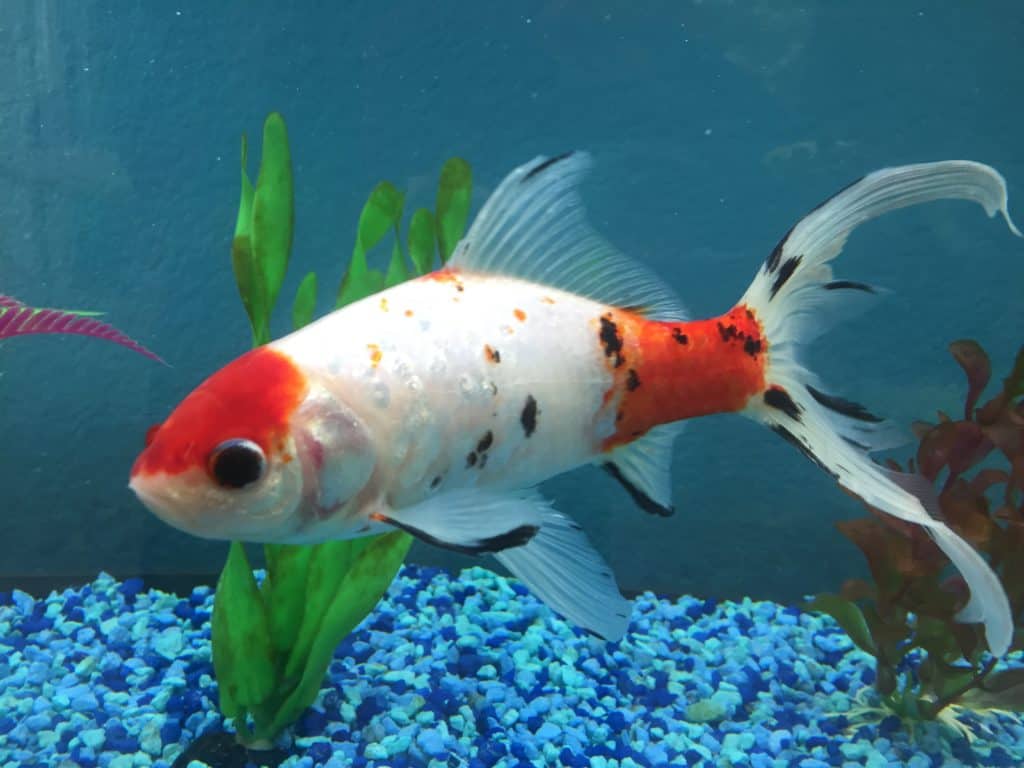
Hi, I’ve tried all of the above, I even let the pellets sit in a cup of water for a few minutes before feeding my fish. The pellets sink, the fish eat them then an hour or so after they can’t swim to the bottom and stay they always float to the top, by morning they are ok. Please help
Thanks.
Your fish will require a further veterinary workup, likely involving radiographs or x-rays to evaluate the swim bladder and/or intestines. You can find a local one at https://fishvets.org. If there is no one in your area, please read the following: https://cafishvet.com/fish-health-disease/how-to-find-a-fish-veterinarian/
My fish swims upside down and floats at the top of the tank for a long time now. I can’t find sinking pebbles and I can’t get some other special thing for my goldfish. If I just keep feeding the their normal floating food, will my fish go back to normal?
Your fish will require veterinary assistance for a complete diagnosis and proper treatment. Please call (831) 278-1081 for veterinary assistance. If you are outside California and Nevada, please visit https://fishvets.org or https://wavma.org
For the past couple of weeks or so my lionchu Peaches has been floating at the top of the tank periodically, mainly at night when she is sleeping. I have tested the water numerous times and have done my normal water changes, she’s not upside down, just floating at the top. She can swim normally if she wants. I got her a couple of months ago and she was not doing this at first and all her food is sinking pellets, bloodworms, and peas. I need some advice for my sweet girl. I just don’t want her skin to be hurt from the floating and being exposed to the air.
If you are concerned about your fish, please call (831) 278-1081 for veterinary assistance. If you are outside California and Nevada, please visit https://fishvets.org or https://wavma.org
Our Mr. Bubbles floats at the top and sometimes upside down, when I tap on the tank he starts to swim around. I appreciate the article and have a few questions. He is approximately 8 hrs old and has grown into a beautiful fan tail gold fish. Question? Am I feeding him correct food? Tetra Fin Goldfish flakes Plus ( with Algae Meal to promote health. I feel like it is making him float more. Should I find a different food for him?? Also his tank has a filter so I change water every 1.5 week. Thoughts??
Thank you
Karin
If you would like to discuss the best diet option for your fish, please schedule an online consultation: https://866fishvet.spp.io/order/onlineconsult
my oranda goldfish started floating yesterday and now i’m noticing white areas on its head. they aren’t little dots but kind of more like patches. do u know what this could be?
If you are concerned about your fish, please call (831) 278-1081 for veterinary assistance. If you are outside California and Nevada, please visit https://fishvets.org or https://wavma.org
Hello, I follow your YouTube channel, it’s very educational.
Anyway, this is exactly the problem my comet goldfish has. It’s about two years old now. I’ve tried the methods above before but it still ends up floating to the top and searching for food at the surface, taking in more air. Recently, I’ve taken to floating a square cut plastic bag on the surface to discourage my fish from resting up there, and try to rest in the netted fry crib I left upright in the tank instead. No luck. The plastic bag is definitely not a solution I wish to do longterm, but I can’t keep medicating my fish every week. I’m wondering if I can get a floating aquatic plant, and what your opinion would be on its usefulness for discouraging or even just protecting the fish a little from the exposure?
I live in Ireland and I could only find one or two people qualified in aquatic veterinary in the country, who are more for fish farming than domestic pets, so it would be helpful to find a method I can implement myself. If you have any ideas pleae let me know!
Many thanks.